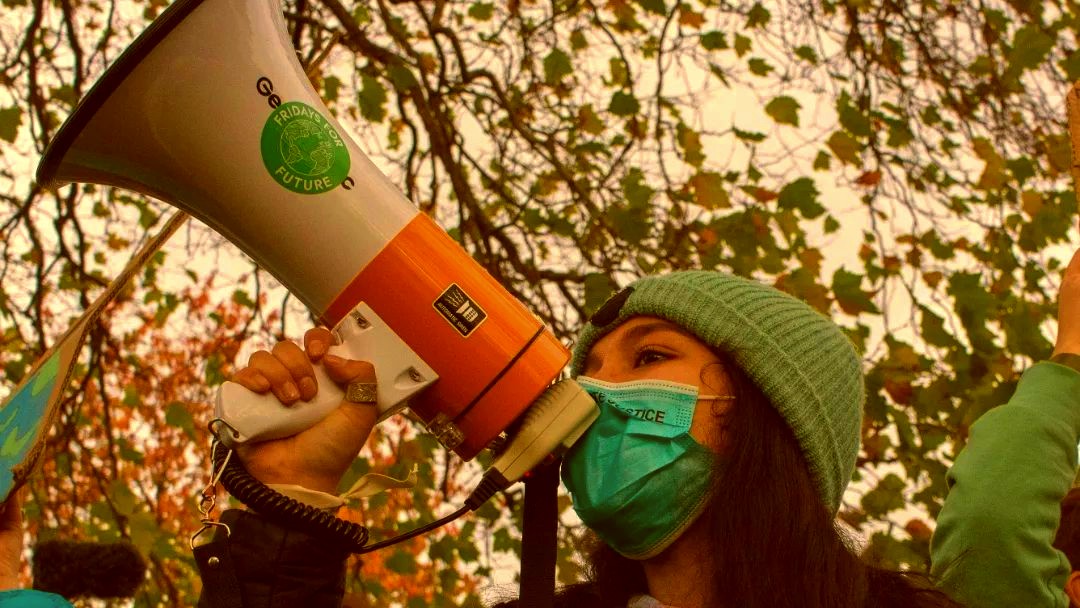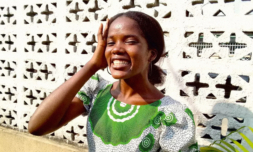We spoke with Chilean socio-environmental activist and ecofeminist Catalina Santelices about the link between gender and climate change, why women and girls are disproportionately affected by the crisis, and what must be done to address this.
Despite progress in recent years, a great deal more work needs to be done to amplify the gender perspective in the context of climate change. At COP27, a stand-alone day has been held for this, with the aim of fully integrating equality into the processes of formulating and implementing policies and actions on the ground.
So far, talks have sought to bring the issue to the forefront by providing a dedicated platform where existing challenges can be discussed, experiences can be shared, and responsive strategies can be promoted.
To learn more, we spoke with Chilean socio-environmental activist and ecofeminist Catalina Santelices, who focuses on this particular facet of protecting our Earth.
She is the co-founder of Latinas For Climate, a network of young Latin American feminists that raises awareness about intersectionality and supports women and girls across the region with virtual content empowering them to raise their voices. Through this project, which they hope will have a far-reaching impact, they’re connecting the dots between human rights and the ongoing crisis.
View this post on Instagram
Thred: The link between gender and climate change is not necessarily obvious to most. Yet women and girls are some of the most vulnerable categories of people who are having to not only confront the adverse effects of the crisis but really adapt their lives to cope with it. Could you expand upon why it is they’re disproportionately affected and how you hope this will be addressed today?
Catalina: There are numerous reasons as to why women – particularly those from the Global South – are so impacted by the crisis. The most prolific being outdated societal structures. I’m from Chile and the girls in our Indigenous communities are really struggling because they’re still expected to stay at home and care for their families rather than study so they can make important decisions. Women have 3X as high a chance of dying in a climate disaster because we are relegated to these spaces.
Thred: Do you believe that COP27 can meet the primary needs of women and girls on the front lines (integrated policies, financial aid, and better regional cooperation are some examples)?
Catalina: I don’t think that COP is going to save them. The decisions made today won’t reach women and girls on the front lines. Not now, not for years to come. What really helps, however, is connecting with people outside of the negotiations. Because inside those rooms, the needs of the people aren’t being projected, only private interests.
It’s money over lives at the moment.
Thred: The structure of COP remains dis-empowering for minority groups, from the rules around how actions (e.g. protests) can be held, to limitations around access. This exacerbates the challenges already facing women and girls – especially those from the Global South. How can these issues be rectified and have we witnessed any improvements at this years’ summit so far?
Catalina: Latinas are really underrepresented at COP this year. This is OK. We’re in Africa, so it’s essential we amplify the voices of African women. However, Latinas are not being heard. Last year, we only made up 3.8% of all attendees. The decisions are being made without our presence. In terms of improvements, I don’t think there have been any. If you think about the main policy ask at COP27 – loss and damage – we haven’t really seen much. This demonstrates a serious lack of commitment from governments. We’re not even half way there yet we have no time to lose. One improvement for me that I’d like to mention has been the youth pavilion. I’ve been able to meet so many amazing people from around the world to discuss projects, our cultures, our struggles. It’s been a great, safe, space for us to network that I think was really needed this time round.
Thred: Though women and girls are already disproportionately affected by the climate crisis, they’ve still been showing up with resilience to solve these problems for decades. How can we amplify their voices, better representation, and ensure they have a seat at the table while avoiding tokenism?
Catalina: As a young girl from Chile I experience a lot of tokenism, but also youth washing. At COP, the decision makers only want us for photo ops and to make speeches that allow them to feel as though they’re including minority groups, but that they don’t truly listen to. We need to have a voice. We need to be represented everywhere. Not just where they want us to be. I mean, we can’t even protest this year. We’re handcuffed. Something needs to change and soon.





















